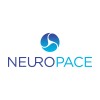
Rechargeable Implantable Vagus Nerve Stimulation System for Drug-Refractory Epilepsy
Drug-Refractory EpilepsyTo evaluate the performance of automatic stimulation mode of a new rechargeable implantable vagus nerve stimulation system for drug-refractory epilepsy

Role of the Gut Microbiota in Pediatric Epilepsy
Drug Resistant EpilepsyNearly a third of children with epilepsy are refractory to pharmacotherapy. The ketogenic diet (KD) is a highly effective alternative therapy reducing seizure frequency by 50% in more than half of treated children. The exact mechanisms of KD remain poorly understood, and recent studies have implicated the gut microbiota (GM). This pilot study aims to determine the feasibility of a 12-week dietary intervention with prebiotic fiber in children with epilepsy. The investigators hypothesize that consumption of inulin will alter gut microbiota and may have effects on seizure frequency.

Clinical Study Evaluating the Safety of Lactobacillus Probiotic in Children With Drug Resistant...
Drug Resistant EpilepsyAnimal and human studies have brought up evidence supporting Gut microbial disbalance, namely dysbiosis, as a causative factor of epilepsy, especially the refractory form. thus, probiotics might constitute a safe, low-cost, and effective supplementary therapy in patients with DRE. The Lactobacillus population is probiotic bacteria that have a beneficial role in epilepsy. Lactobacillus can influence brain function through the modulation of GABA, as shown in rodent models. Moreover, it has been demonstrated in animal models of epilepsy and in human epileptic patients that probiotic treatment aimed at restoring gut microbiota equilibrium has beneficial effects on epileptic symptoms by increasing GABA in animals and the levels of Bifidobacteria and Lactobacillus in humans.

The Benefit and Safety of Older Generation Anti-Epileptic Drugs (AEDs) in Drug-Resistant Epilepsy...
Drug Resistant EpilepsyThe goal of this interventional study is to learn about the efficacy and safety of first line anti epileptic drugs (AEDs) as substitution therapy for children who are resistant to second-line AEDs. The main question to answer it aims are : how much the difference proportion of responders (responders are children who achieve the decrease of seizure frequencies by 50%) how much time it is needed to achieve the decrease of seizure frequencies by 50% The patients who are eligible for the study and have given their consent, will be enrolled, divided into 2 groups, the control and intervention. The participant should follow the 14 weeks of intervention that consists of 6 phases : baseline, initial dose, titration dose, maintenance dose, tapering-off dose, and new combination maintenance dose.

Effects of Green Light Exposure on Epileptic Spikes in Patients With Refractory Epilepsy
EpilepsyEpilepsy IntractableThe purpose of this study is to obtain preliminary data in advance of a larger clinical trial aimed to test whether a single session of green light exposure can lead to a clinically significant reduction in epileptic spikes in patients with medically-refractory epilepsy. As this is a potentially fragile patient population, the study will test safety and tolerability as well as efficacy.

RNS System RESPONSE Study
EpilepsyPartial Seizure3 moreTo demonstrate that the RNS System is safe and effective as an adjunctive therapy in individuals age 12 through 17 years with medically refractory partial onset epilepsy.

Exogenous Ketone Esters for Drug Resistant Epilepsy
Drug Resistant EpilepsyThis study aims to investigate the efficacy of add-on exogenous ketone esters for treating children with drug-resistant epilepsy

Adjunctive Everolimus Treatment of Refractory Epilepsy
EpilepsyThis project is a prospective, randomized, placebo-controlled, double-blind study that will evaluate the clinical efficacy of everolimus as an adjunctive treatment in adult patients diagnosed with refractory epilepsy.

Fenfluramine for the Treatment of Different Types of Developmental and Epileptic Encephalopathies:...
Refractory EpilepsySYNGAP1 Encephalopathy4 moreThis study is a pilot non-controlled clinical trial with adjunctive fenfluramine for the treatment of five different types of developmental and epileptic encephalopathies (DEEs) focused on epileptic and "non-epileptic outcomes": SYNGAP1 and STXBP1 encephalopathies, inv-dup(15) encephalopathy, multifocal or bilateral malformations of cortical development, and continuous spikes and waves during sleep. The main goal is to assess changes in seizure frequency comparing before and after treatment with fenfluramine in five specific types of developmental and epileptic encephalopathies (DEEs). Secondary objectives of this study are the analysis of changes in seizure intensity and duration, and "non-epileptic outcomes" such as variations in cognitive activity, level of alertness, impulsivity/self-control, gait stability and other alterations that might be detected during the interview and physical examination.

Cathodal Transcranial Direct Current Stimulation in Patients With Drug-resistant Focal Epilepsy...
Drug Resistant EpilepsyThe basis of this project is the application of cathodal tDCS in patients with drug-resistant focal epilepsy including patients whose seizures persist after epilepsy surgery, who rejected epilepsy surgery, and/or who are not suitable for surgery. For this purpose, 5-day consecutive cathodal electrical stimulation sessions will be used with personalized electrode montage according to the patient's seizure focus. In this context, the changes in seizures frequency and epileptic discharges will be examined for the first week and 12th week after the tDCS sessions through the seizure diary of the patients and the electroencephalogram (EEG) recordings to be taken. In addition, changes in cognitive functions, mood, and quality of life will be examined in patients after the intervention.
